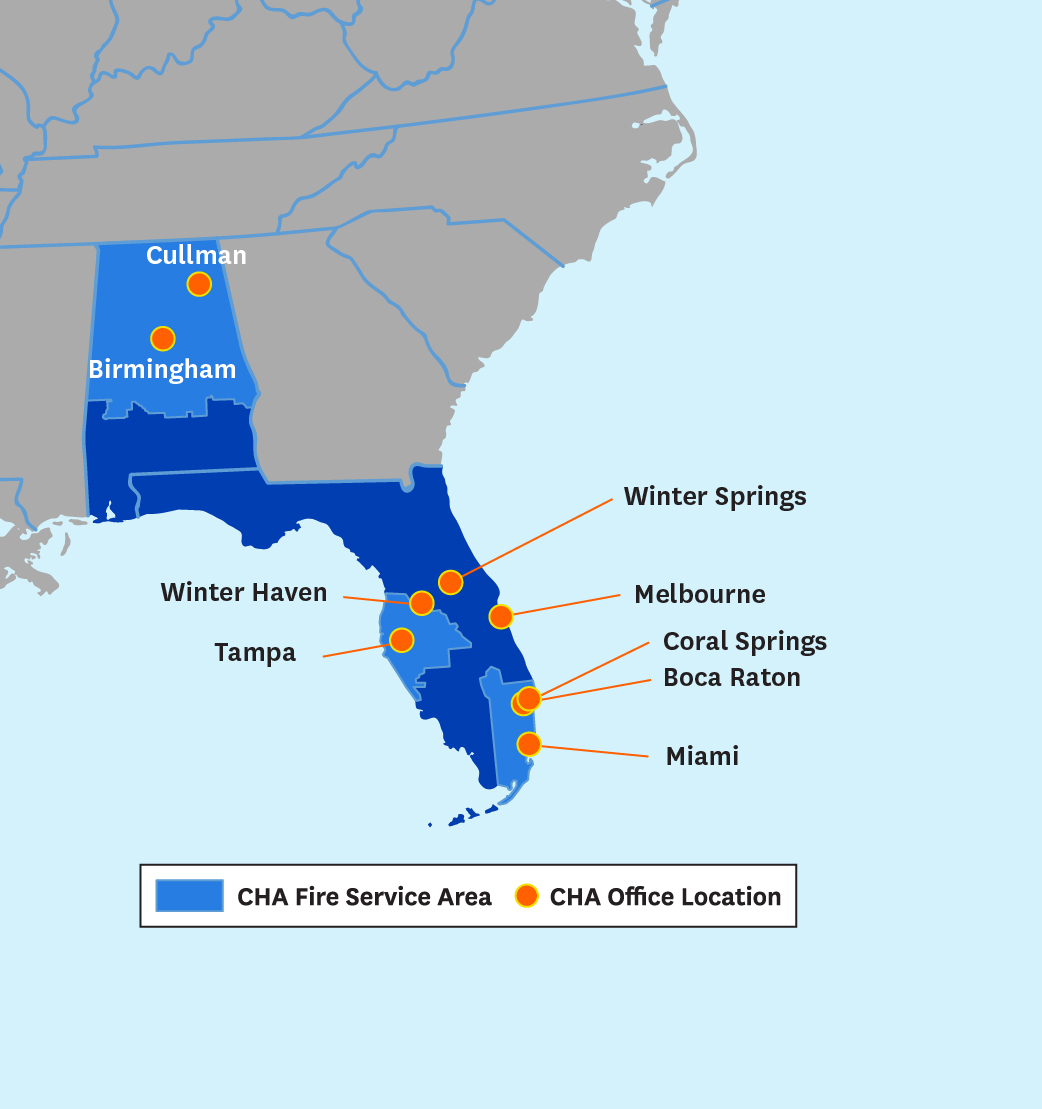Building Safer Communities: Proactive Fire Safety Through Expert Inspection
Posted October 8, 2025
Fire protection isn’t just about responding to emergencies—it’s about preventing them. True fire safety must be proactive, not reactive. It requires expert oversight that reduces risks, enforces standards, and adapts to evolving threats. Fire inspectors and protection professionals are at the forefront of that mission—establishing safety measures that protect lives, property, and public trust.
Proactive Safety Starts with Expert Oversight
Fire Sprinkler Inspectors rely on NFPA 25, the national standard for inspecting, testing, and maintaining fire protection systems. Routine inspections and operational testing keep systems reliable and compliant with regulatory requirements.
Inspections cover all essential fire and life safety systems, including:
- Fire sprinkler systems
- Fire alarm systems
- Fire extinguishers
- Kitchen suppression systems
- Clean agent systems
- Special hazard suppression equipment
- Emergency and exit lighting
By tailoring inspections to the unique requirements of each facility, inspectors can help clients remain compliant, avoid downtime, and maintain operational readiness.
Beyond Routine Inspections
Fire safety doesn’t stop at checklists. Rapid response to urgent needs with 24/7 emergency service helps facilities come off fire watch and restore system reliability when the system is impaired.
Commercial fire sprinkler installation involves multiple coordinated activities, including:
- Project management oversight
- Materials procurement
- System startups and commissioning
- Owner training
Reliable fire protection depends on professional service technicians, knowledgeable project managers, and a rapid-response mindset.
Understanding the 2025 NFPA Code Updates
The 2025 NFPA updates are reshaping how residential and commercial properties approach fire safety:
- NFPA 1 — Fire Code: Tighter prevention standards for new builds and renovations, with additional mandates for clear evacuation routes.
- NFPA 101 — Life Safety Code: Expanded requirements for safety plans, upgraded fire alarm systems, and enhanced smoke control.
- NFPA 72 — Fire Alarm & Signaling Code: Stronger requirements for wireless reliability, backup power, and voice-enabled emergency communications.
- NFPA 25 — Water-Based Fire Protection: More rigorous testing protocols, stricter inspection requirements, and immediate corrective action for system failures.
These changes demand proactive planning and expert execution. Organizations that integrate these requirements into their strategy can turn compliance challenges into opportunities for greater safety and reliability.
A Commitment to Safer Communities
With deep roots in the Southeastern U.S.—including Alabama, Florida, Georgia, South Carolina, North Carolina, and Tennessee—and a growing national and global reach, CHA partners with clients who recognize that fire safety is more than a one-time task. It’s an ongoing commitment to protecting people, preserving property, and building lasting trust.
Whether adapting to new NFPA codes or responding in real time to emergencies, CHA delivers trusted expertise to keep communities safe—one inspection at a time.
Visit CHA’s Fire Protection webpage to learn more about our services.
